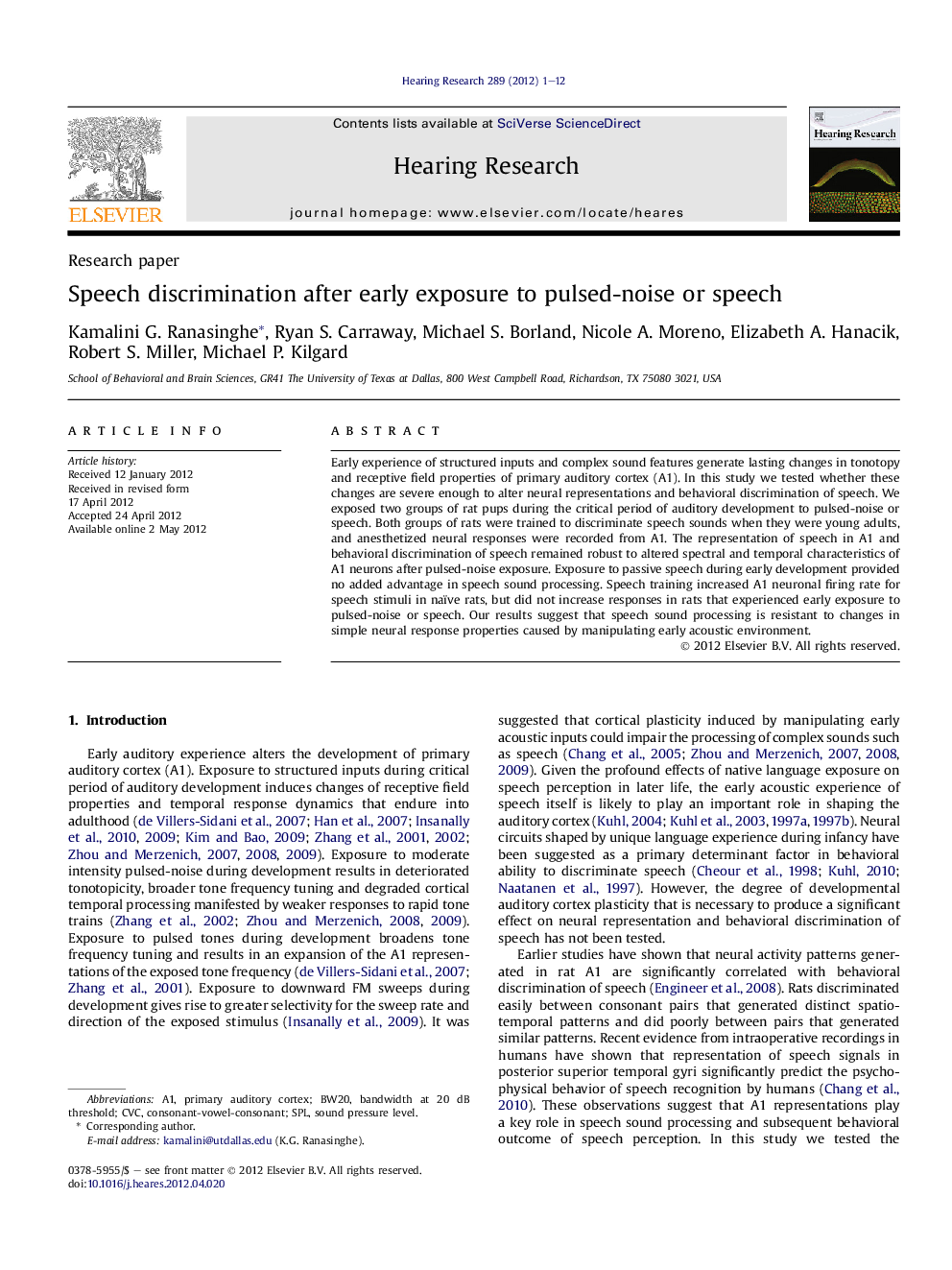| Article ID | Journal | Published Year | Pages | File Type |
|---|---|---|---|---|
| 4355348 | Hearing Research | 2012 | 12 Pages |
Early experience of structured inputs and complex sound features generate lasting changes in tonotopy and receptive field properties of primary auditory cortex (A1). In this study we tested whether these changes are severe enough to alter neural representations and behavioral discrimination of speech. We exposed two groups of rat pups during the critical period of auditory development to pulsed-noise or speech. Both groups of rats were trained to discriminate speech sounds when they were young adults, and anesthetized neural responses were recorded from A1. The representation of speech in A1 and behavioral discrimination of speech remained robust to altered spectral and temporal characteristics of A1 neurons after pulsed-noise exposure. Exposure to passive speech during early development provided no added advantage in speech sound processing. Speech training increased A1 neuronal firing rate for speech stimuli in naïve rats, but did not increase responses in rats that experienced early exposure to pulsed-noise or speech. Our results suggest that speech sound processing is resistant to changes in simple neural response properties caused by manipulating early acoustic environment.
► Pulsed-noise-rearing and speech rearing alters auditory cortex responses. ► Early exposure does not alter speech discrimination ability. ► Auditory cortex responses can account for robust speech discrimination.
